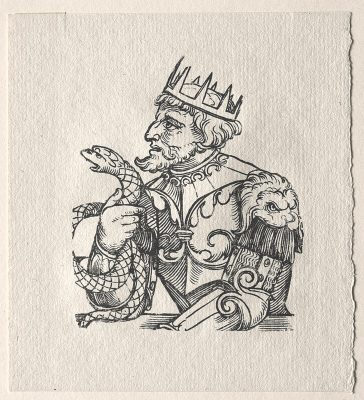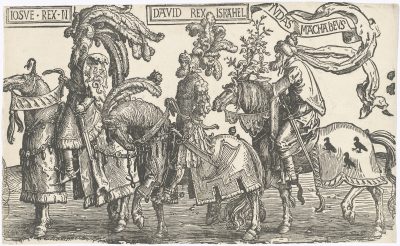
by: Dr. Bill Adams, Senior National Representative BFP United States
Across Eretz Yisrael (the Land of Israel) and in Jewish communities around the globe, the season to kindle the Hanukkah (Festival of Lights) candles is here! Synagogues, community centers, households and businesses come aglow with the light of the special menorah (seven-branched candelabra) called a hanukkiah. Its eight branches (plus one to light the rest) recall the miracle of Hanukkah, when a single day’s oil used to kindle the menorah in the rededicated Temple in Jerusalem lasted for eight days instead. The lights of Hanukkah speak of Jewish freedom, but behind the glory of liberty is a tale of a hard-won liberation. The ancient story reminds us that it is God who fights Israel’s battles—both then and now—for it is on this land and among these people that He works out His redemption plan for all the nations of the earth.
 Our Story Begins
Our Story BeginsThe drama unfolded in 165 BC in the Judean foothills near the village of Emmaus, when the Jewish revolt against the Hellenistic (Seleucid–Greek) regime of Antiochus IV Epiphanes was in full swing. Antiochus had mercilessly oppressed the Jews and had turned his wrath on Jerusalem through great slaughter and pillage. He prohibited reading and studying the Torah (Gen.–Deut.), forbade circumcision and sacrificed swine flesh upon the sacred altar of the Temple.
As in the days of Moses, Joshua and David, Israel was desperate for God to raise up a man who would deliver them from their oppressor. Just like then, God would once again act as Israel’s ultimate Heavenly Deliverer. As such, His chosen human deliverer had to know his core mission: reestablishing the worship of the God of Israel by the people of Israel in the Land of Israel.
Israel’s Heavenly Deliverer did indeed raise up a human deliverer for His people. The leader of God’s choosing was called the “Hammer.”
Judah Maccabee was the third son of a priest named Mattathias. The surname Maccabee comes from maqqaba, which is Aramaic for hammer. While the word was built into the family name, Judah decidedly earned the moniker through the exploits of his ragged Israelite band against vastly superior Seleucid forces, both entrenched in the Land and invading from the north.
Judah led his mace and sling-equipped freedom fighters against highly trained Seleucid regulars employing the latest in Greek-developed tactics and armament. Under General Gorgias, they boasted heavy and light infantry, cavalry, ballista, chariot, javelin, spear, bow, battering ram, sword and shield. The rag-tag band of Jewish troops was no match, unless God working through inspired leadership could somehow overcome the imbalance of forces.
As a deliverer, Judah was indeed inspired. Perhaps that inspiration came from his father in the faith, Abraham, who centuries earlier, had used his few advantages against the Mesopotamian kings and their mighty armies that had absconded with his nephew Lot, his family and all their possessions. Catching up with his opponents near Dan in the north, Abraham adopted guerilla tactics as he “divided his forces against them by night” (Gen. 14:15). Judah Maccabee would employ the same tactics against the military might of the Seleucids.
The Hammer chose the narrow valleys in the sh’felah (lowland) region to stage his ambush. There he could cut off escape routes while harassing the vulnerable flanks of the invading forces. Units in column marching with those constrictors could not form the deadly phalanx that made them invincible. The Israelites could hit and run, thus demoralizing the soldiers and reducing their combat efficiency.
 The champion of the Jews was also inspiring a zeal for God and the Land of Israel among his growing number of followers. The apocryphal book of 1 Maccabees records Judah’s motivational address to his soldiers on the eve of battle. The words spoken by Israel’s human deliverer that night echo with a deep dependence on the Heavenly Deliverer, the God of Israel:
The champion of the Jews was also inspiring a zeal for God and the Land of Israel among his growing number of followers. The apocryphal book of 1 Maccabees records Judah’s motivational address to his soldiers on the eve of battle. The words spoken by Israel’s human deliverer that night echo with a deep dependence on the Heavenly Deliverer, the God of Israel:
“It is easy for many to be defeated by a few. In the sight of Heaven, there is no distinction between deliverance by many and deliverance by a few. Victory in war does not depend upon the size of the fighting force, but rather upon the strength that comes from Heaven. Our enemies have come against us in a display of insolence and lawlessness to destroy us and our wives and our children, and to plunder us. However, we are fighting in defense of our lives and our laws. He himself will crush them before our eyes; therefore, do not be afraid of them” (3:17–22).
Gorgias had to break out of his tactical quagmire, so he devised a night attack on the Maccabean encampment at Emmaus. With intelligence gained from Judean hill dwellers, Judah ordered campfires lit all around Emmaus to draw in Gorgias while he withdrew his main force, leaving only a rearguard in the camp. As Gorgias staged the assault, the Maccabean remnant retreated into the valley, thus drawing the Seleucids after them and into the trap that Judah had set. The follow-on forces of Gorgias then retreated in disorganized panic!
The war was by no means over, but a subsequent victory at Beit Zur secured the Jewish army’s victory march into recaptured Jerusalem. Judah’s first order of business was cleansing the Temple of the Lord, sanctifying it after defilement. The rekindling of the menorah—and the miracle of the eight days’ supply of oil—birthed the Hanukkah traditions that lives on to this day.
Traditions certainly abound during this holiday. Jews gather to enjoy foods fried in oil, recalling the miracle of the oil in the menorah. There are eight days of gift giving in celebration of hard-fought freedom, and there is storytelling of the Maccabees’ bravery and victory over their Seleucid oppressors.
During this time, you too can gather, perhaps in like celebration, but also in prayer for the security and well-being of Israel. As during ancient times, enemies today continue to seek to oppress, subjugate and destroy the Jewish people. But in the power of the One who fights Israel’s battles and in the spirit of the Maccabees, the Israel Defense Forces and the other security arms of Israel stand guard to secure the land and people of God’s choosing for His redemptive purpose in the earth.
We pray for their success and their protection. We pray for the peace of Jerusalem (Ps. 122:6). Chag Hanukkah sameach (happy Hanukkah)!
Photo Credit: Click on photo for photo credit
Photo License: An illustration of the Maccabees
Photo License: An engraved illustration of Antiochus IV Epiphanes
All logos and trademarks in this site are property of their respective owner. All other materials are property of Bridges for Peace. Copyright © 2025.
Website Site Design by J-Town Internet Services Ltd. - Based in Jerusalem and Serving the World.